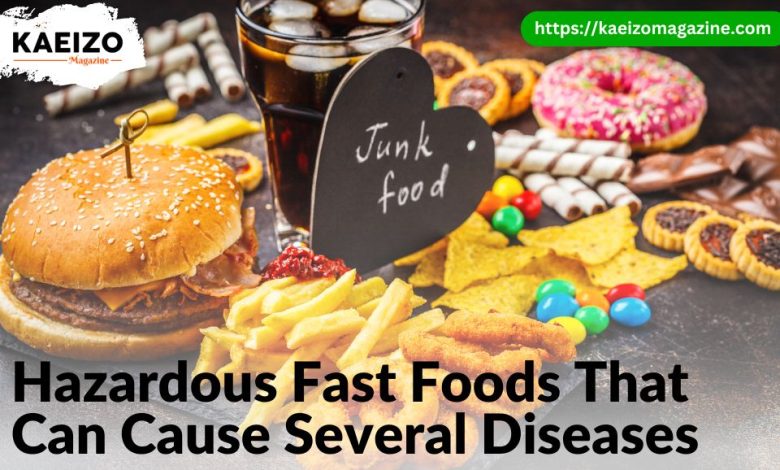
Certainly! Fast foods, when consumed in excess, can contribute to various health issues due to their high levels of unhealthy fats, sugars, and additives. Some hazardous fast foods that are linked to several diseases include:
- Deep-Fried Foods: Items like French fries, fried chicken, and onion rings are typically cooked in oils high in trans fats and saturated fats, which can increase the risk of heart disease, obesity, and diabetes.
- Processed Meats: Burgers, hot dogs, and other fast-food meats often contain processed meats like bacon, sausage, and ham, which are associated with a higher risk of colorectal cancer, cardiovascular disease, and type 2 diabetes.
- Sugar-laden Beverages: Sodas, milkshakes, and sweetened teas are loaded with added sugars, which can lead to weight gain, type 2 diabetes, and tooth decay.
- High-Calorie Burgers and Sandwiches: Fast-food burgers and sandwiches are often oversized and packed with excessive calories, unhealthy fats, and sodium, contributing to obesity, high blood pressure, and heart disease.
- High-Sodium Foods: Fast foods tend to be high in sodium, which can lead to hypertension, stroke, and kidney disease when consumed in excess.
- Processed Junk Snacks: Chips, nachos, and other snack items sold at fast-food establishments are often high in unhealthy fats, sodium, and artificial additives, increasing the risk of obesity, cardiovascular disease, and metabolic syndrome.
- Desserts and Sweet Treats: Fast-food desserts like pies, cookies, and ice cream sundaes are packed with sugar and unhealthy fats, contributing to weight gain, insulin resistance, and diabetes when consumed frequently.
It’s essential to consume fast foods in moderation and prioritize whole, nutrient-rich foods to maintain optimal health and reduce the risk of developing chronic diseases.




